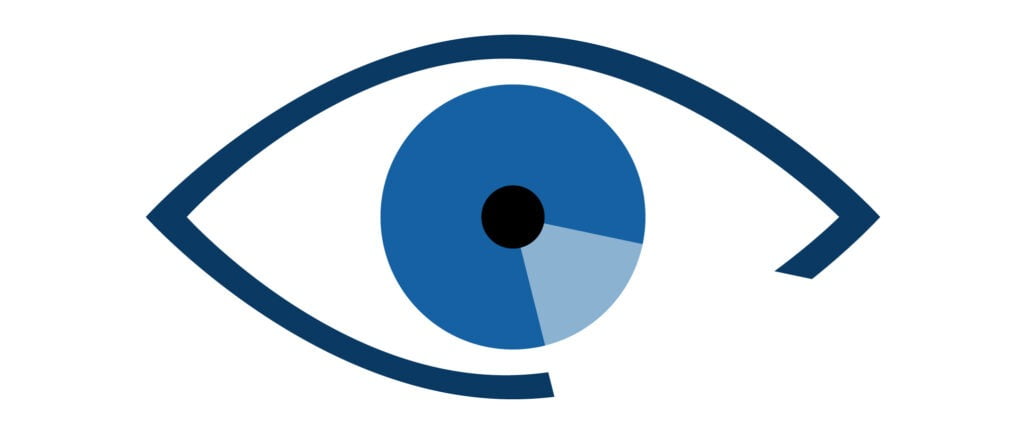DDBI Group conducts business intelligence checks, due diligence, locating and discovering assets in Israel and around the world, and identifying bank transfers and hidden holdings of capital. The group operates and carries out international investigations to locate assets in Israel and abroad for foreclosures, enforcement of judgments, and more, and we have taken part in cracking some of the largest and most well-known cases of fraud and deceit in Israel and in various countries, while we manage to locate property and assets that have been smuggled and hidden by debtors and creditors
![]()
![]()

DDBI-Group – Due Diligence Business Intelligence Solutions
DDBI Group specializes in Business intelligence investigations.
Every organization needs information no matter the industry in which it operates
External or internal threats can cause the organization dire consequences when they are not tested
When organizational investigations are done well, they will expose situations and weaknesses that affect the security of the organization, identify on going and minimize risks
DDBI Group specializes in conducting investigations and security checks for your organization
We examine internal and external risk factors, and then we can provide customized solutions
DDBI Group is a long-standing and leading group in its field in Israel !
The group provides services on an ongoing basis to the business and private sector in the field of business intelligence, financial intelligence, strategic intelligence, due diligence and locating hidden assets in Israel and around the world.
The group serves as a representative in Israel in the field of business intelligence to a number of renowned international companies, some of them are leading in the world.
Business intelligence is a complex field that requires precision and creative thinking, and in order to provide an efficient and accurate business intelligence service, we work internationally and have an extensive network of connections in many countries allowing us to provide a global financial and strategic business intelligence service.
Our team consists of graduates of special units in the financial and economic field, graduates of the security services in information gathering and operation positions, and analysts from various fields.
The group's chairman has been involved in the field of intelligence for about 30 years, works in a special unit and have previous experience in a variety of key positions in the field of security, investigations and intelligence in Israel and abroad.
With years of experience in gathering strategic investigative business intelligence, our firms' competitive business intelligence researchers know how to gather vital information about your competitors in the market, intelligence that will help you make the right decisions.
Accurate business intelligence is essential for building a winning strategy for companies that want to make smart and informed decisions regarding new acquisitions, investments, expansions, new markets, partnerships and more.
The DDBI Group analysts are specially trained to conduct strategic investigative business intelligence investigations and competitive intelligence investigations, while clarifying and obtaining in-depth information on current and potential business partners, for the success of your company.
With the help of the information we collect, you will be able to make the right strategic decisions, improve your business activity and make the right decisions about strategic relationships and future deals, and most importantly, protect the company from theft and embezzlement.
As part of a strategic investigative business intelligence gathering activity, we will provide you with comprehensive information on competitors in your business niche, including pricing, marketing, distribution, innovations, promotions and more.
As part of these tests, we act in a creative and original way, "outside the box" thinking in order to provide you with relevant information.
Some of the questions we answer in the context of business intelligence, financial intelligence, competitive intelligence and strategic intelligence, includes:
Due Diligence
Profile checks
Business Intelligence
Companies Business Intelligence
Financial Business Intelligence
What is business intelligence and how it can help you
Business intelligence investigations refer to the process of using business intelligence (BI) tools and techniques to gather, analyze, and interpret data for the purpose of uncovering insights and making informed business decisions. These investigations typically involve examining various data sources, such as databases, data warehouses, and external data, to identify patterns, trends, and anomalies that can provide valuable insights into a business's operations, performance, and market dynamics
Business intelligence investigations often involve the following steps
Data collection: Gathering relevant data from various sources, such as internal systems, external databases, social media, and other data repositories
Data integration: Consolidating and organizing the collected data into a unified format suitable for analysis. This may involve data cleansing and transformation to ensure data accuracy and consistency
Data analysis: Applying analytical techniques and tools to examine the data and uncover meaningful insights. This can include methods such as data mining, statistical analysis, data visualization, and predictive modeling
Interpretation and reporting: Interpreting the analysis results and presenting them in a meaningful way to stakeholders, such as management teams or decision-makers. This may involve creating reports, dashboards, or interactive visualizations to communicate the findings effectively
Decision-making: Using the insights gained from the investigation to support strategic, tactical, and operational decision-making within the organization. This can include identifying opportunities for cost savings, optimizing business processes, improving customer experiences, or identifying market trends and opportunities
Business intelligence investigations are often conducted by specialized teams or individuals with expertise in data analysis, statistics, and business acumen. They leverage BI tools and technologies, such as data visualization tools, data querying languages, and advanced analytics platforms, to facilitate the investigation process and derive actionable insights
Overall, business intelligence investigations play a crucial role in helping organizations gain a competitive edge, improve performance, and make data-driven decisions based on a deep understanding of their business environment
You can use business intelligence (BI) in various ways to gain insights and make informed decisions within your organization. Here are some common use cases for leveraging business intelligence
Performance analysis: Use BI tools to track and analyze key performance indicators (KPIs) relevant to your business goals. Monitor metrics such as sales revenue, customer acquisition rates, inventory turnover, or employee productivity to identify trends, spot areas of improvement, and optimize your operations
Market research: Utilize BI to gather and analyze market data, competitor information, and customer behavior to understand market trends, identify new opportunities, and develop effective marketing strategies
Customer analysis: Analyze customer data to gain insights into their preferences, behavior, and buying patterns. This information can help you segment your customer base, personalize marketing campaigns, improve customer satisfaction, and increase customer retention
Financial analysis: Use BI to analyze financial data, such as revenue, expenses, and profitability, to gain a comprehensive understanding of your organization's financial health. This can include forecasting future financial performance, identifying cost-saving opportunities, and optimizing pricing strategies
Supply chain optimization: Use BI to monitor and optimize your supply chain processes. Analyze data related to inventory levels, supplier performance, order fulfillment, and transportation to improve efficiency, reduce costs, and minimize disruptions
Risk management: Utilize BI to identify potential risks and vulnerabilities within your business. By analyzing data from various sources, you can detect patterns that indicate fraudulent activities, cybersecurity threats, compliance issues, or operational risks, allowing you to take proactive measures to mitigate these risks
Decision support: Use BI tools to provide real-time or near-real-time data and visualizations to support decision-making at different levels of your organization. This can include interactive dashboards, ad-hoc reports, and data-driven insights that enable executives, managers, and employees to make informed decisions quickly
To effectively use business intelligence, follow these steps
Define your objectives: Clearly articulate the specific business problems or questions you want to address with BI
Identify relevant data sources: Determine the data sources that contain the information needed to answer your questions. This can include internal databases, spreadsheets, CRM systems, ERP systems, social media data, and external market research reports
Data collection and integration: Gather and integrate the relevant data into a centralized data repository, ensuring data accuracy and consistency
Data analysis: Apply appropriate data analysis techniques, such as data mining, statistical analysis, and visualization, to explore patterns, trends, and relationships within the data
Interpretation and reporting: Interpret the analysis results and present them in a meaningful and actionable way through reports, dashboards, or visualizations
Implement insights: Use the insights gained from your BI analysis to inform strategic, tactical, and operational decisions within your organization. Monitor the impact of these decisions and refine your BI approach as needed
It's important to note that successfully leveraging business intelligence requires a combination of technical expertise, domain knowledge, and collaboration between business users and IT professionals. Additionally, choosing the right BI tools and technologies that align with your specific needs and budget is crucial
Is business intelligence legal
Yes, using business intelligence is legal as long as it is done in compliance with applicable laws and regulations. Business intelligence involves the collection, analysis, and interpretation of data, which may include personal, financial, or sensitive information. To ensure legal and ethical practices, it is important to adhere to the following considerations
Data privacy: When collecting and analyzing data, organizations must comply with privacy laws and regulations, such as the General Data Protection Regulation (GDPR) in the European Union or the California Consumer Privacy Act (CCPA) in the United States. This includes obtaining proper consent for data collection, implementing appropriate security measures, and protecting the confidentiality of personal information
Data governance: Establish proper data governance practices within your organization to ensure that data is handled responsibly and ethically. This includes defining data ownership, establishing data quality standards, and implementing data access controls to protect sensitive information
Intellectual property: Respect intellectual property rights when using business intelligence. Ensure that you have the necessary rights or licenses to access and use the data or information you are analyzing, especially if it comes from external sources
Industry-specific regulations: Some industries, such as healthcare, finance, or telecommunications, have specific regulations and compliance requirements related to data handling and analysis. Ensure that your business intelligence activities comply with industry-specific regulations relevant to your organization
Ethical considerations: While business intelligence can provide valuable insights, it is important to use the information ethically. Avoid using business intelligence to engage in illegal or unethical activities, such as fraud, market manipulation, or discrimination
It is advisable to consult legal and compliance professionals familiar with the laws and regulations applicable to your jurisdiction and industry to ensure that your business intelligence practices align with legal requirements and ethical standards
we welcome you to Contact us now for discreet consultation

